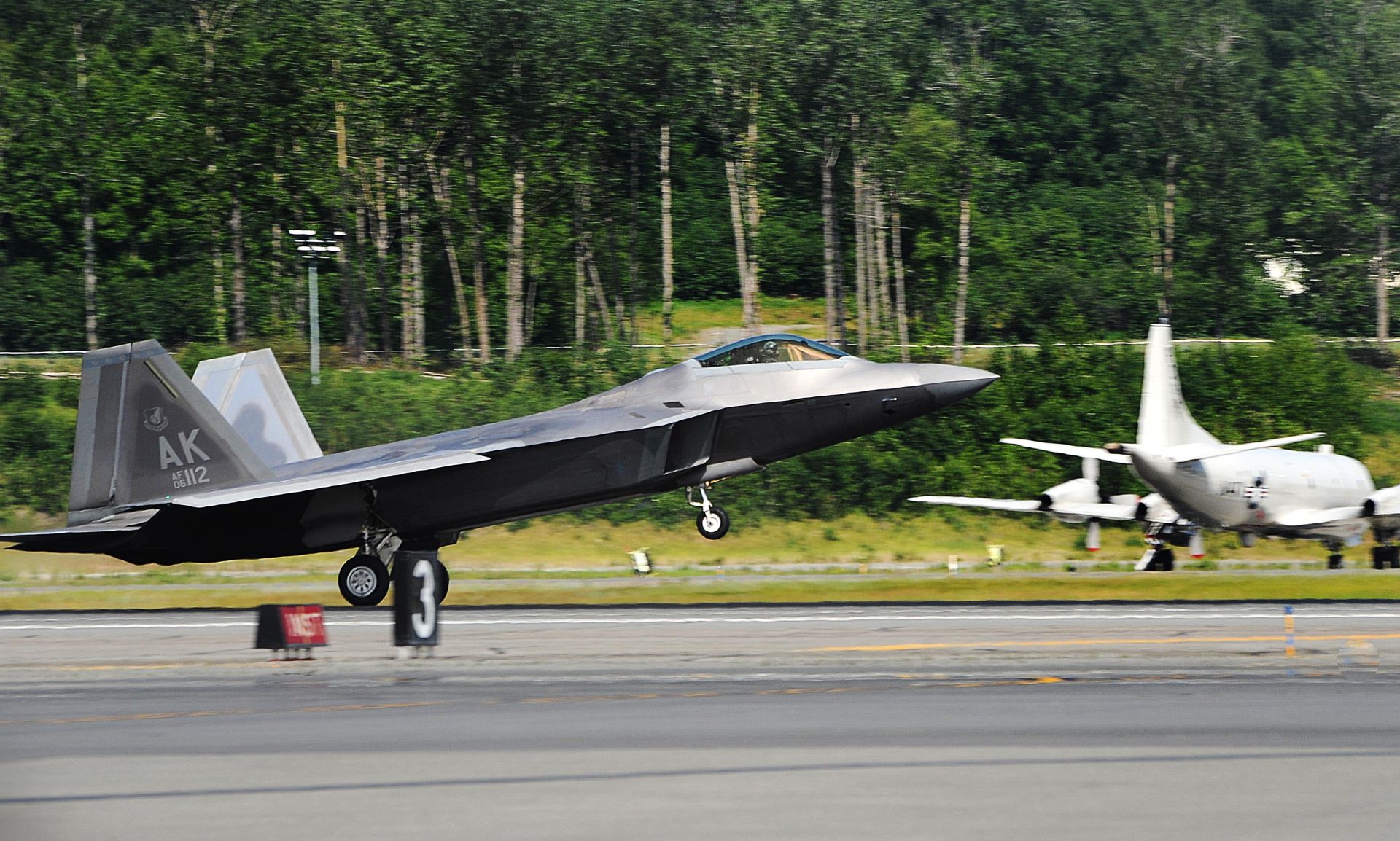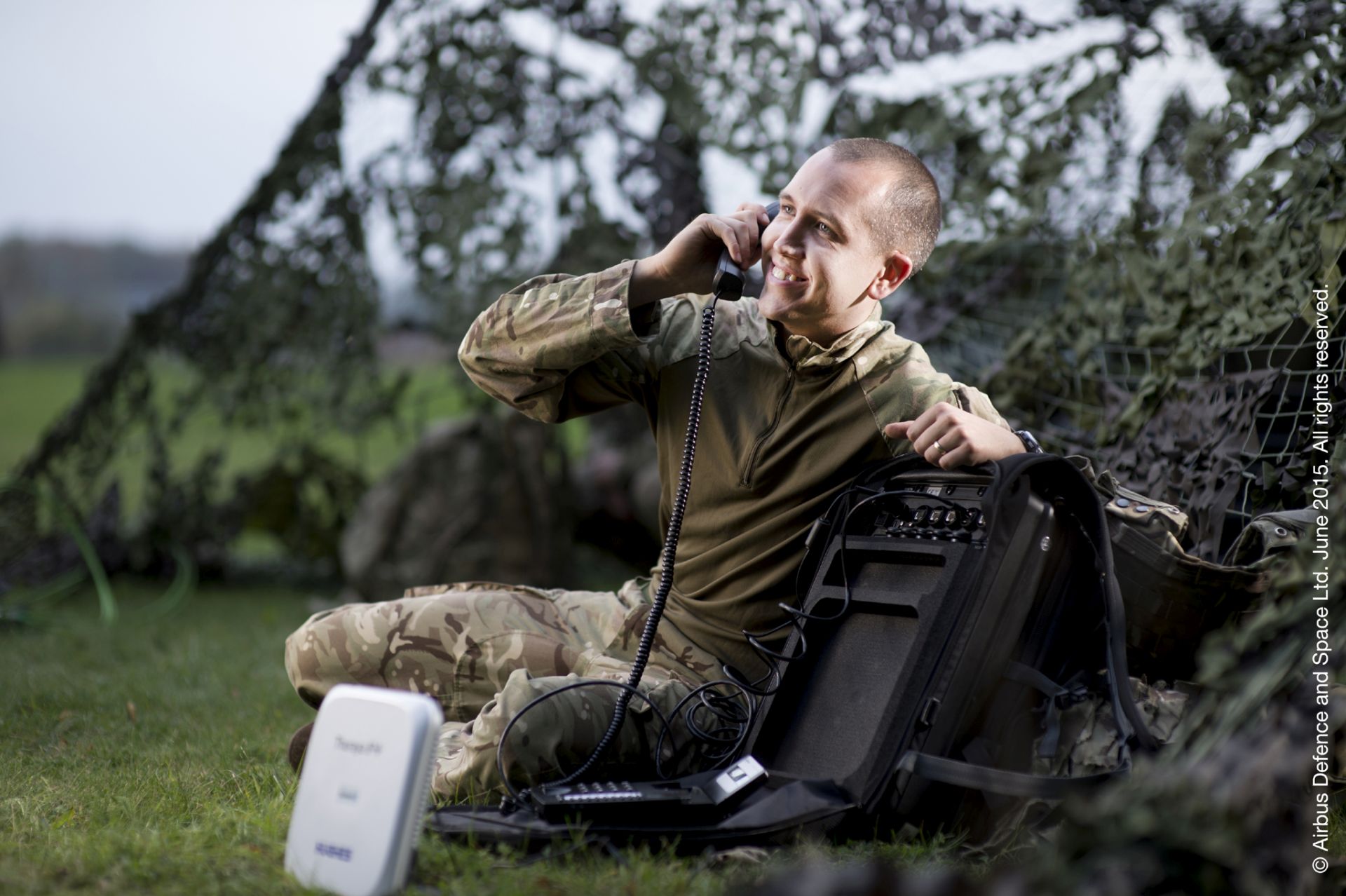JOINT BASE ELMENDORF-RICHARDSON, Alaska: Its wide muzzle, short black broad nose with large nostrils and deep-set, dark eyes grimace intimidation across the patch on the right shoulder of the pilot boarding his aircraft while preparing to engage an enemy in the joint interoperability environment that is Northern Edge 2015.
The intimidation the 525th Fighter Squadron pilots bring to the fight is only matched by the powerful capabilities of an aircraft adept at ensuring lethality against all advanced air threats.
The F-22 Raptor is able to support the mission through its ability to establish air superiority quickly and hold it through the duration of the missions, said Capt. Richard Williams, a 525th FS F-22 pilot.
“Our job is to gain control of the airspace when flying against other air-to-air platforms and discourage anybody who may try to seek, engage and destroy one of our friendly forces,” he said. “We are protecting them by making sure enemy aircraft aren’t operating in the area in a position where they could fire upon and potentially destroy one of our aircraft.”
The role of the F-22 during Northern Edge is to work alongside other aircraft with missions as varied as dropping bombs to providing airlift and airdrops including Navy and Marines fighters in joint environments.
“If we were to deploy in a Northern Edge scenario, we are obviously going to deploy with the Navy,” said 1st Lt. Michael Blahut, a 525th FS F-22 pilot. “It’s important to practice like you play. You cannot play and do the real thing without practicing it first … otherwise no one will be on the same page.”
Blahut said it’s rare for 525th FS pilots to have the opportunity to train beside the Navy, which means Northern Edge helps provide important insight into how pilots can implement fifth generation fighter tactics when working with other services’ aircraft.
Blahut, a former F-15C Eagle crew chief prior to becoming a pilot, has an interesting perspective on what joint exercises can provide to the interoperability of working with other services.
“From a maintainer’s perspective it’s about helping the Navy use our facilities to maintain their aircraft,” he said.
Different service branches do business differently; the branches get the opportunity to watch these processes and trade ideas, Blahut said.
Now participating in Northern Edge as a pilot, Blahut has a better understanding of the air mission and appreciates his maintainer’s perspective.
“You see pilots running because they might have had to ground abort a jet, like I did today,” he said. “He is supposed to be somewhere at a particular time and at a particular location, to adhere to a strike package, or whatever it might be, the mission commander might have made for the day. As a crew chief you have no idea.”
“Looking back if I could I would tell myself, ‘look dude there is a reason this dudes running from one jet to another,'” Blahut said. “‘He has a takeoff time to meet, so if you could have little patience with the dude that would be great.'”











